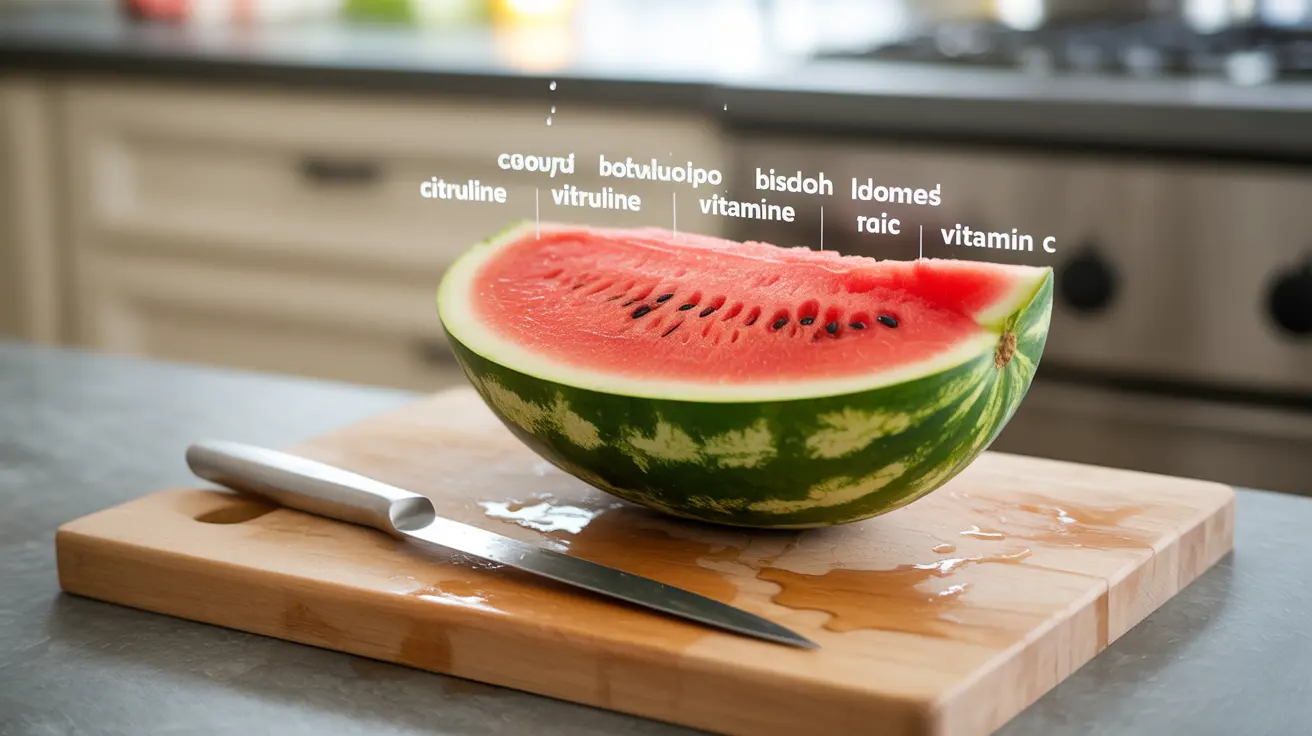While most people discard watermelon rind without a second thought, this often-overlooked part of the fruit contains valuable nutrients and compounds that can significantly benefit your health. From supporting cardiovascular function to enhancing athletic performance, watermelon rind offers a range of advantages that might make you think twice before throwing it away.
Understanding the potential health benefits and proper preparation methods of watermelon rind can help you make the most of this sustainable and nutritious food source. Let's explore why this underutilized portion of watermelon deserves a place in your diet.
Nutritional Profile of Watermelon Rind
Watermelon rind is rich in several important nutrients and beneficial compounds. The most notable is citrulline, an amino acid that plays a crucial role in various bodily functions. The rind also contains vitamins A and C, B vitamins, and important minerals such as potassium and zinc.
What makes watermelon rind particularly valuable is its high fiber content, which can support digestive health and help maintain steady blood sugar levels. The rind contains even more citrulline than the pink flesh, making it an excellent source of this beneficial compound.
Cardiovascular Benefits and Blood Pressure Management
One of the most significant benefits of watermelon rind comes from its ability to support heart health and blood pressure regulation. The citrulline in the rind converts to arginine in the body, which helps produce nitric oxide. This compound helps relax and dilate blood vessels, potentially leading to better blood flow and lower blood pressure.
Regular consumption of watermelon rind may contribute to overall cardiovascular health by supporting healthy blood pressure levels and improving circulation throughout the body.
Athletic Performance and Recovery
Athletes and fitness enthusiasts may find watermelon rind particularly beneficial. The citrulline content can help reduce muscle fatigue and improve exercise performance. This compound aids in removing lactic acid from muscles during intense physical activity, potentially reducing post-workout soreness and speeding up recovery time.
Studies suggest that the natural compounds in watermelon rind may help enhance oxygen delivery to muscles during exercise, potentially improving endurance and overall athletic performance.
Sexual Health and Male Vitality
The citrulline in watermelon rind has been linked to improved sexual health, particularly in men. By promoting better blood flow throughout the body, including to the reproductive organs, it may help support healthy sexual function. The conversion of citrulline to arginine can contribute to better vascular health, which is essential for sexual wellness.
Safe Preparation and Consumption Methods
While watermelon rind is safe to eat, proper preparation is key to making it palatable and enjoyable. Here are several ways to incorporate it into your diet:
- Juice or blend it into smoothies
- Pickle it for a tangy condiment
- Stir-fry it with other vegetables
- Add it to soups or stews
- Create preserves or jellies
Before consuming, thoroughly wash the rind and remove the green outer skin. The white portion is what contains the beneficial nutrients and can be prepared in various ways.
Frequently Asked Questions
What are the health benefits of eating watermelon rind? Watermelon rind offers numerous health benefits, including improved cardiovascular health, better blood pressure regulation, enhanced athletic performance, and support for sexual health. It's rich in citrulline, fiber, and various vitamins and minerals that contribute to overall wellness.
How can watermelon rind help lower blood pressure? Watermelon rind contains citrulline, which converts to arginine and helps produce nitric oxide in the body. This process helps relax and dilate blood vessels, potentially leading to lower blood pressure and improved circulation.
Is watermelon rind safe to eat and how should it be prepared? Yes, watermelon rind is completely safe to eat when properly prepared. Remove the green outer skin, then wash the white portion thoroughly. You can juice it, pickle it, stir-fry it, or add it to smoothies and soups for easy consumption.
Can watermelon rind improve exercise performance or workout recovery? Yes, the citrulline in watermelon rind can help reduce muscle fatigue, improve exercise performance, and speed up recovery by helping remove lactic acid from muscles during physical activity.
How does the citrulline in watermelon rind affect sexual health? The citrulline in watermelon rind supports sexual health by improving blood flow throughout the body, including to reproductive organs. It converts to arginine, which helps produce nitric oxide, potentially enhancing vascular function and sexual wellness.




